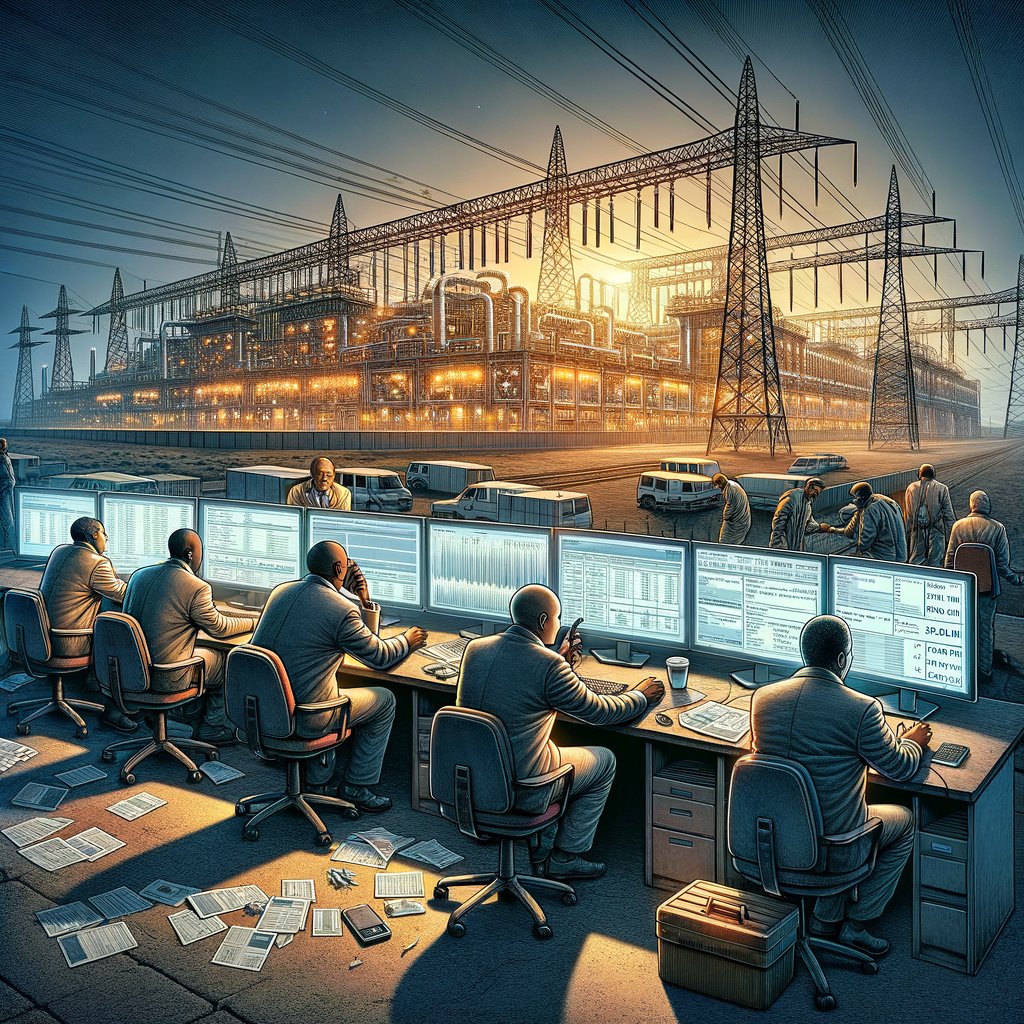Image created by AI
Corruption Exposed: Kusile Power Station Scandal Involving R450 Million in Fraudulent Transactions
An intensive probe by South Africa's Special Investigating Unit (SIU) has unearthed extensive corruption involving an Eskom employee at the Kusile Power Station. The investigation uncovered that this individual facilitated the issuance of purchase orders worth over R450 million outside of standard working hours, receiving illegal kickbacks from various suppliers.
During a recent session with the Standing Committee on Public Accounts, SIU forensic investigator, Viven Govender, detailed the corrupt activities. According to Govender, most transactions were executed between 18:00 and 24:00, some even stretching into the early hours until 07:00. This unethical practice was predominantly orchestrated by one staff member, who is now facing disciplinary measures.
The fiscal malfeasance at Kusile Power Station was stark compared to other stations; for instance, the next highest total for such after-hours orders at another station was R35 million at Duvha Power Station, highlighting the extensive irregularity at Kusile.
Kusile Power Station, a project that began in 2008 and was supposed to be commercially operational by 2014, has been plagued by delays and budget overruns. Initially budgeted at R81 billion, the costs have ballooned to estimates as high as R226 billion according to some energy experts, more than doubling the original figure. These financial discrepancies include not only escalated project costs but also significant design flaws necessitating costly redesigns and repairs. Consequently, the completion of Kusile has been delayed by more than a decade.
In attempts to rectify some of the issues, Eskom, in collaboration with Mitsubishi Hitachi Power Systems Africa (MHPSA), has initiated substantial reworks on the station’s units. These modifications are mainly centered on improving the design of boilers and mills of generating units, with each unit requiring shutdown periods of approximately 75 days to implement the changes.
As a response to the findings by the SIU, Eskom has blocked the involved service providers from obtaining further purchase orders, aiming to mitigate any ongoing corrupt activities.
The implications of these revelations are vast, affecting not only Eskom's operational integrity but also the national power supply, which heavily relies on the proper functioning and completion of Kusile Power Station. This investigation has, thus, further emphasized the critical need for stringent oversight and transparency within state-owned enterprises to curb corruption and ensure efficient service delivery to the public.










